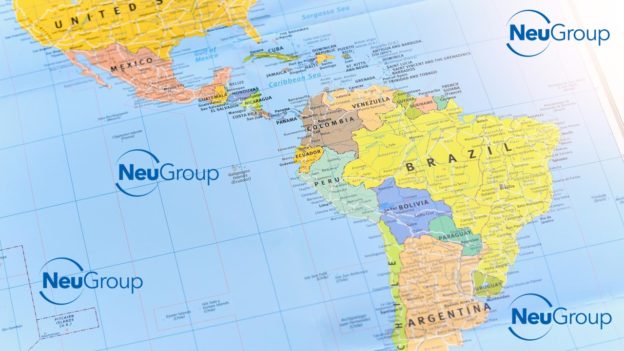
By Joseph Neu
Latin America is being hard hit by the COVID-19 virus and the economic aftershocks, both of which formed the backdrop for NeuGroup’s Latin America Treasury Peer Group 2020 H1 virtual meeting. Members discussed the challenges of intercompany lending, the lack of treasury center capabilities and looming Argentina chaos.
Here are few key takeaways I wanted to share.
Rethinking intercompany funding. One member noted that in most Latin American countries where her company is located, entities are funded on a standalone basis. This is challenging when banks locally don’t step up with reasonable credit.
- MNCs funding intercompany need to fit the region carefully into their strategic financing plans, for example, to tailor funds transfer pricing or their capital allocation models for intercompany loans; also at issue is capital invested into the region and cash pulled out vs. left in country.
- COVID-19 has vastly disrupted forecasts of local cash and capital needs, so going forward, members will look to both improve forecasting capabilities in the region and integrate them more smoothly into the company’s broader strategic cash and capital planning.
Exasperation with the lack of treasury center capabilities. Members expressed their growing impatience with the lack of progress in the region, by governments and banks, to allow them to implement world-class cash management and other treasury operations solutions.
- Latin America is simply not keeping pace with what is happening in the rest of the world. The impediments to world-class treasury center capabilities, e.g., linking up affiliates to the in-house bank, makes it more challenging amid the crisis to meet the needs of members’ businesses, customers, suppliers, and other stakeholders.
Factoring in another Argentina crisis. As one member observed, this is not a new occurrence for Argentina; the country has defaulted on its debt nine times. Still, the most recent default has led to some new and innovative restrictions to accessing USD, members note.
- For example, there has been a call on companies with offshore dollars to use them to pay external vendors before being able to sell more pesos. The only alternative is to invest pesos in assets that yield something that helps mitigate the inflationary loss.
- So-called blue-chip swaps and their bond equivalents still carry fears of reputation risk.
- Meanwhile, find a bank to help with factoring receivables so that you get those pesos to invest or spend as soon as possible.


